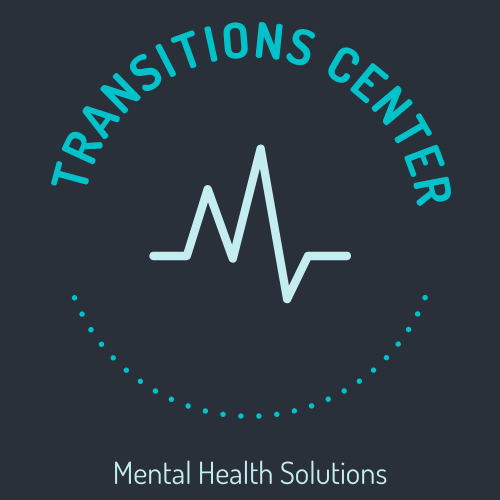It’s so easy to take mental health for granted. It’s easy to not think about it, or ignore the signs that you might be suffering from something like depression. Don’t get me wrong, there are some pretty serious symptoms of severe mental illness and those should be taken seriously. But what if you’re just a little stressed out? What if your job is really demanding? Mental health is important at any stage in life, but it often goes overlooked until we hit rock bottom.
Here are seven different categories of mental illness: anxiety disorders, mood disorders, psychological distress and well-being (symptoms), sleep problems, substance use disorder and eating disorders.
1.Depression is a mental health disorder in which people lose motivation for activities and may have feelings of sadness, emptiness, or hopelessness. Depression can cause sleep problems, difficulty concentrating, lethargy or fatigue. Some also experience loss of appetite (leading to weight gain) and social withdrawal. In severe cases depression can lead to thoughts about suicide as well as suicide attempts.
2. Anxiety Disorders – A person who suffers from intense fear or worry that lasts six months or more with two out of three criteria: the individual worries excessively about at least one area while experiencing excessive anxiety; when they’re anxious they will either avoid any activity related to their concern(s), experience physical symptoms like nausea/sweating/trembling etc., make decisions on the basis of their fear; or they will do some act to alleviate worries.
3. An obsessive-compulsive disorder (OCD) is characterized by unwanted thoughts and repetitive behaviors that cause significant distress in an individual’s day-to-day life. Obsessions, which are intrusive and inappropriate impulses, may include risk taking acts such as unprotected sex with a new partner or committing violence on himself/herself or others. Compulsions are ritualistic activities designed to neutralize obsessions – for example someone might have repeated hand washing rituals because he feels “dirty” after touching raw meat at work.
4. Bipolar disorder, also known as manic-depressive illness or manic depression, is a mental health condition that causes extreme mood swings. It occurs when someone’s mood constantly changes from high to low over time. The symptoms of bipolar disorder can include periods of feeling very “high” and unusually happy (mania) – sometimes this will be followed by episodes of deep sadness called “depression.”
5. Post-traumatic stress disorder (PTSD), which may develop after an individual has experienced or witnessed a traumatic event in their life such as war, natural disaster, serious accident/injury or abuse. Symptoms include horrific thoughts like flashbacks and nightmares about the event(s). Individuals with PTSD may have trouble sleeping at night because they are easily startled.
6. Schizophrenia is a mental disorder that causes people to lose contact with reality, often involving hallucinations and delusions as well as disordered speech and thinking patterns. A person can experience many different symptoms of schizophrenia, but these are the most common: auditory (hearing) voices or sounds in their minds for which there is no obvious source; persistent thoughts without any purposeful content; an inability to enjoy anything once enjoyed before; lack of emotional response such as laughing or crying at appropriate times and/or feelings like someone else has taken over his/her body.
7. Personality disorders are a group of long-term patterns in behavior that can seriously interfere with someone’s day to day life, including their ability to form relationships and function at work or school. Symptoms include significant difficulties getting along with others; an inability to control intense anger; poor coping skills for managing stress and emotions; impulsive behaviors like spending sprees, binge eating or risky sex – without considering the consequences. These problems will usually start by early adulthood (18 years old), though some personality disorders may not show up until later on in life.
Mental illnesses can be difficult to deal with. They have a tendency of making life more complicated and changing your perspective on the world in ways that you never thought were possible. But these conditions are not insurmountable, which is why it’s important for everyone to learn about them so they know how to cope when faced with mental illness themselves or someone else who has one. We’ve summarized seven different categories of mental illness- things like anxiety disorders, obsessive compulsive disorder, depression, bipolar moods swings… We hope our quick overview helps shed some light on what might cause an individual’s difficulty coping with their own mind–and maybe even give you some insight into yourself too! Stay healthy and fit.
About the Authors
Transitions Center for Natural Mental Health Treatments for a variety of physical and mental dependency issues and conditions. Substance use disorders are difficult to understand for many people. The physical and mental aspects of any substance disorder are complicated and unique to the individual suffering. The differences between physical and psychological dependency vary but have some similarities. Transitions Center for Natural Mental Health Treatments help the public know what to look for as a means of helping a loved one cope with the challenges of mental health disorders.
This article was written with the help of Mary Jane’s CBD Dispensary, a top cbd online. CBD products have worked with many people who have physical, mental or emotional disabilities. They are passionate about helping their customers find relief by providing them with quality-made CBD Hemp products that work best for their needs. If you need help finding the right product for your specific health concerns, check out their site today!

